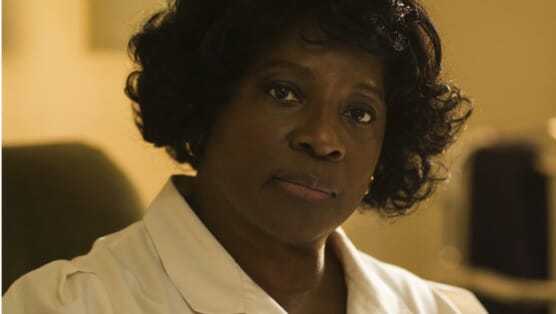Show Me a Hero: “Part 5” and “Part 6”
(Episode 1.05 and 1.06)

In its finale, Show Me a Hero does successfully pull something off that’s perhaps unique to the history of television: it begins and ends as two separate shows. The first four episodes of the series focus on the almost exclusively white half of the cast, showing how legislation creating new public housing town homes finally made its way past the racist and intransigent Yonkers government. It’s a fascinating journey, with heroes and villains and drama, and everything you’d hope for, but it also tacks on stories of the people who might, perhaps, one day live in said housing. With the final two episodes of the show, those houses are real and it’s simply a matter of moving people into them and creating a non-hostile dynamic between the new residents and the old ones, which is a much more difficult task than it may seem. Here, the white characters’ stories feel tacked on, and the end of Oscar Isaacs’ Nick Wasicsko offers a strange conclusion to a story that really isn’t about him, and hasn’t been for the last two hours.
In a way, it’s natural that Hero’s story is bifurcated in this way. This isn’t the story of one person, or even one house; it’s the story of the way large groups of people and institutions affect other large groups of people. The spotlight has to shine on what’s relevant to the houses, it’s just that this leads to a nontraditional story structure that never quite gels. With these last two episodes, every time Nick’s story gets another few minutes of screen time it’s hard not to wish we could get back to the plight of those moving into the new townhouses, but that’s a tribute to just how well these final episodes dig us out of the first four’s hole.
Simply put, practically every problem the show had in depicting people of color disappeared in these last two episodes. From Billie’s heartbreaking story of being kicked out of her home because of her deadbeat boyfriend, to Norma’s acceptance of moving out of her high rise, these stories no longer felt rote or melodramatic. Carmen being passed over for the housing was the most heartbreaking scene of the entire series, while watching her move in, while cross-cut during the funeral made even that obnoxious choice feel meaningful. We watch as these new residents take control of their own fates and make these new housing projects into a community, and it’s absolutely inspiring in the best possible way. The optimism here doesn’t feel misplaced, it feels naturally arrived at from the growth of something better happening in these characters’ lives.
- Curated Home Page Articles By Test Admin October 21, 2025 | 3:10pm
-

- Curated Home Page Articles By Test Admin October 21, 2025 | 2:57pm
- Urls By Test Admin October 21, 2025 | 2:57pm
- Curated Home Page Articles By Test Admin October 21, 2025 | 2:55pm
-

-

-

-

-

-

-

-

-

-

-

-

-

-

-

-

-

-

-

-

-

-

-

-

-

-

-

-

-

-

-

-

-

-

-




































